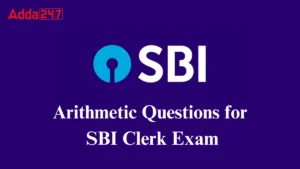Q1. The “Service are Approach” was an strategy launched to improve which of the following?
(a) Micro, Small and medium Enterprising
(b) Unorganized Sector
(c) Rural Lending
(d) Urban Industrial Lending
(e) None of the above
Q2. Which among the following bank/banks in India have set up the Financial Literacy & Credit Counselling centers?
(a) RBI
(b) Scheduled Commercial Bank
(c) Foreign Banks working in India
(d) Regional Rural Banks
(e) None of the above
Q3. Which of the following imaginary circumstances, the Reserve Bank of India will opt to sell Government securities in the open market?
(a) When the Foreign funds inflow is meek
(b) When there is enormous Foreign Funds Inflow in the India Economy
(c) When banks have low liquidity and need liquidity
(d) All of the above
(e) None of the above
Q4. Which among the following is correct full form of CAS in context with banking markets in India?
(a) Cash Authorization Scheme
(b) Credit Authorization Scheme
(c) Credit Access System
(d) Credit Arrangement System
(e) None of the above
Q5. Many a times we read in the financial newspapers that Reserve Bank of India is “Lender of Last Resort (LOLR)” in India. Which among the following statement gives the most correct definition of “Lender of Last Resort”?
(a) If a person or firm which is eligible to get a loan, does not get if from any commercial bank, may approach to Reserve Bank of India for loan.
(b) If the state governments are in crisis and need money for short term, they can approach RBI for this purpose.
(c) If a commercial bank is in crisis, it may place its reasonable demand for accommodation to Reserve Bank of India.
(d) A scheduled commercial bank meets all of its demands in all weathers from Reserve Bank of India
(e) None of the above
Q6. Which of the following is NOT the part of the structure of the financial System in India?
(a) Industrial Finance
(b) Agricultural Finance
(c) Government Finance
(d) Personal Finance
(e) None of the above
Q7. Grameen Bank and Micro Credit are associated with which person?
(a) Manmohan Singh
(b) Bill Gates
(c) Md. Yunus
(d) Aung San Su Ki
(e) None of the above
Q8. As we all know Govt. of India collects tax revenue on various activities in the country. Which of the following is a part of the tax revenue of the Govt.?
I. Tax on Income
II. Tax on Expenditure
III. Tax on property of Capital Asset
IV. Tax on Goods and Services
(a) Both I and III only
(b) Both II and IV only
(c) Both II and III only
(d) All of the above
(e) None of the above
Q9. We very frequently read about Special Economic Zones (SEZs) in newspapers. These SEZs were established with which of the following objectives?
I. To attract foreign investment directly
II. To protect domestic market from direct competition from multinationals
III. To provide more capital to agriculture and allied activities
(a) Only I
(b) Only II
(c) Only III
(d) All of the above
(e) None of the above
Q10. Many times we read about Future Trading in newspapers. What is Future Trading?
I. It is nothing but a trade between any two stock exchanges where in it is decided to purchase the stocks of each other on a fixed price throughout the year
II. It is an agreement between two parties to buy and sell an underlying asset in the future at a predetermined price
III. It is agreement between Stock Exchanges that they will not trade the stocks of each other under any circumstances in future or for a given period of time
(a) Only I
(b) Only II
(c) Only III
(d) All of the above
(e) None of the above
Q11. (The figures in this questions are imaginary). We suppose that Cash Reserve Ratio (CRR) in country’s economy is 10%. The banking system wish a cash deposits of Rs. 1000 Crore, creates total deposits of Rs. 10,000 Crores. The Reserve Bank wishes that bank should create more deposits. Which among the following step will be taken by the Reserve Bank?
(a) It will lower the Cash Reserve Ratio
(b) It will raise the Cash Reserve Ratio
(c) It will increase the Margin Requirements
(d) It will start selling Government Securities
(e) None of the above
Q12. Many a times we read in the newspapers that RBI takes certain steps to curb the menace of Inflation. In this context, which among the following will not help RBI in controlling the inflation in the country?
(a) An increase in the Bank Rate
(b) An increase in the Reserve Ratio Requirements
(c) A purchase of securities in the open market
(d) Rationing of the credit
(e) None of the above
Q13. We suppose that Reserve Bank of India would like to increase the cash Reserves of the commercial banks. Which among the following would be most appropriate action of the RBI to achieve this aim?
(a) RBI would release gold form its reserves
(b) RBI would raise the reserve ratio
(c) RBI would buy the bonds in the open market
(d) RBI will stop the transactions which involve the bills of exchange
(e) None of the above
Q14. Commercial banks are the largest category of financial intermediaries; others include?
(a) Life-insurance companies
(b) Pension funds
(c) Savings and loan institutions
(d) All of the above
(e) None of the above
Q15. In India nation income is estimated by?
(a) Finance Commission
(b) Central Statistical Organisation
(c) Planning Commission
(d) Finance Ministry
(e) None of the above



 The Hindu Review October 2022: Download ...
The Hindu Review October 2022: Download ...
 Arithmetic Questions for SBI Clerk Exam
Arithmetic Questions for SBI Clerk Exam
 Report Writing in SBI PO Descriptive: Gu...
Report Writing in SBI PO Descriptive: Gu...




